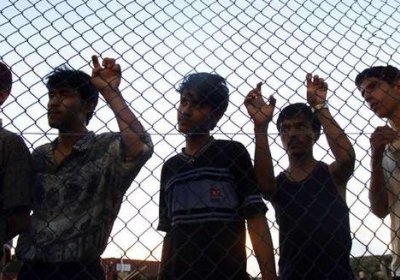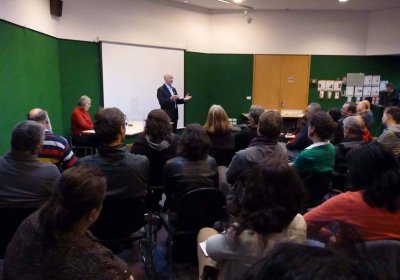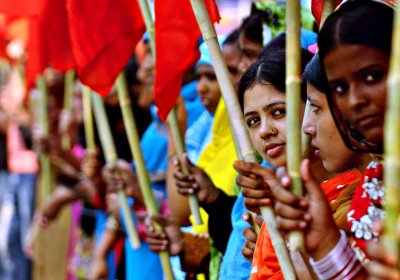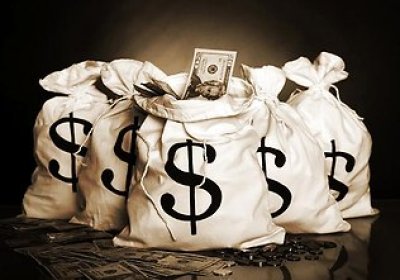“Australia is at a crossroads,” said Liam Flenady, Socialist Alliance candidate for Griffith on July 5.
“One path leads to more austerity, more oppression of minorities, more environmental destruction; the other leads to a just, equal and sustainable society. There is no middle path.
“We require a fundamental change to our economic and political system to build the future we need.”
Flenady has pledged to put a different kind of politics on the agenda in Griffith in the upcoming federal election, one that puts the needs of the 99% in front of the greed of the wealthy 1%.
Australia
After fleeing and risking everything to seek asylum under Australia's laws, Iranian refugees now face being singled out and persecuted once again. This time, by the Australian Labor government.
New Prime Minister Kevin Rudd labelled “a whole bunch of people” as “economic migrants” who “comport as refugees”. Foreign affairs minister Bob Carr said boat arrivals are “increasingly not people fleeing persecution” because they are from “majority religious and ethnic groups”.
Protestors called for more privacy protection at rallies held around Australia on July 6 in response to the revelations that US’s National Security Agency (NSA) has been spying on the communications of most internet users.
Sydney rally organiser Matt Watt from the Support Assange and WikiLeaks Coalition said: “We demand freedom for Edward Snowden, a courageous whistleblower who revealed the wrongdoings by the NSA.
A social crisis is developing throughout suburban Australia. Asylum seekers on short-term bridging visas are being dumped in the community without the right to work, study or receive adequate welfare.
Already traumatised by the situations they are fleeing, dangerous journeys and immigration detention, those on bridging visas face housing stress, food insecurity, alienation and boredom and a return to detention when their bridging visas expire. Processing of asylum claims is on hold and the threat of deportation is constant.
Reading the polls makes it clear that Prime Minister Kevin Rudd is a hit. Overnight, Rudd's return has turned the tables for Labor. From staring down electoral annihilation, Labor is now on par with Liberal leader Tony Abbott. The election is a contest once again.
“Kevin07” was a popular campaign that gained mainstream traction among Australia’s youth in the 2007 federal elections. Even though “Kevin13” lacks the same ring, his return has marked clear moves by Rudd to regain his attraction to young voters.
Former US marine and anti-war activist Vincent Emanuele is making his second speaking tour of Australia during June and July. A member of Iraq Veterans Against the War, Emanuele is speaking to audiences about the US military machine.
At a meeting in Melbourne where Emanuele spoke on July 4, the film On the Bridge was also screened. The film is a series of interviews with Iraq war veterans opposed to the war, including Emanuele.
Shock facts on Aboriginal people and Australian prisons:
* The proportion of Indigenous prisoners has almost doubled in the 20 years since the Royal Commission.
* In 2011, Aboriginal people made up 2.5% of the Australian population. They accounted for 46.2% of all youth in juvenile custody and 26.1% of total adult prison population.
* In the NT, Aboriginal people made up 30.3% of the total population, 96.9% of the juvenile detention population and 82.3 % of the adult prison population.
About 90 people gathered in the Coburg library on June 6 to oppose the Moreland Council’s plans for a mini-CBD in the central Coburg shopping centre.
The meeting was organised by the Save Coburg Residents Network which formed in January to oppose the council’s C123 planning amendment. Most residents only discovered the plans a couple of weeks before the deadline for public submissions.
The plan includes a row of 10-storey buildings along both sides of Bell St on the western entrance to the shopping centre and 10-storey buildings along one side of Sydney Road to the north.
The eight-storey Rana Plaza collapsed in Dhaka, Bangladesh, during working hours on April 24. The official death toll stands at 1129. However, workers’ rights groups believe the number could be higher. Another 2000 workers were injured in the collapse, many losing limbs.
Australia's four biggest banks — the Commonwealth Bank, ANZ, NAB and Westpac — dubbed the "banksters", were condemned for crimes against people and the environment during a protest in Melbourne on June 29.
Protesters marched to each bank, cordoned of the entrance to create a symbolic crime scene and read out a charge sheet.
The action was called by the Socialist Alliance. Margarita Windisch, the Socialist Alliance candidate for the seat of Wills, argued the big banks, mines and energy companies should be nationalised and put under community control.
As the global financial crisis unfolded in October 2008, part of the Australian government’s response was to provide unlimited guarantees of bank deposits and wholesale funding. One result was that the big four banks got bigger while little was said of the $13.8 trillion in off-balance-sheet derivatives to which they were exposed.
Derivatives operate in a global over-the-counter (OTC) market that is almost totally unregulated.
About 100 people attended a public meeting jointly organised by Socialist Alliance and Socialist Alternative in Sydney on June 25.
The meeting discussed how a united left would be in a stronger position to campaign against a conservative Coalition government. Speakers from both organisations, Pip Hinman and Diane Fields, raised ideas about how a possible united socialist party could organise.
- Previous page
- Page 652
- Next page











